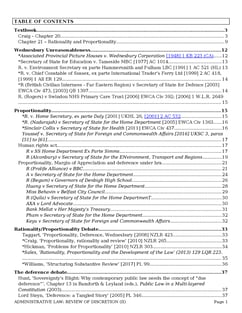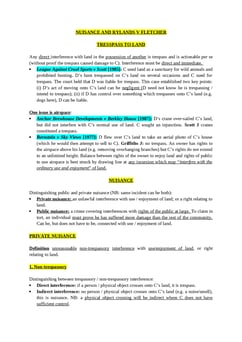Bromley LBC v GLC [1983] 1 AC 768
Judgement for the case Bromley LBC v GLC
Table Of Contents
The Transport Act allowed the GLC wide powers and discretion to achieve a good public transport service in London but it ha to do so on ordinary business principles.
The GLC sought to reduce traffic congestion by raising rates on London residents to reduce the cost of public transport and thereby incentivise people not to use their cars.
HL held this policy to be unlawful because the GLC was not allowed to take into consideration social factors such as traffic congestion in reaching a decision based on ordinary “business principles”- social goods are irrelevant considerations to this end.
Lord Scarman
If, on ordinary business principles, a venture cannot be run without making a loss, this does not authorise the GLC to go out of its way to make an even bigger loss.
NB the section in question required not just that the system be “economic” but also “efficient” and it is likely that as economy dominates, efficiency is lost. Arguably therefore the courts were substituting the balance between the two struck by the GLC with their own decision on the merits. This goes beyond what they are allowed to do under judicial review
RELATED CASES
For Further Study on Bromley LBC v GLC

Administrative Law notes fully updated for recent exams at Oxford and C...
Need instant answers? Our AI exam tutor is here to help.
Ask questions 🙋 Get answers 📔 It's simple 👁️👄👁️
Our AI is educated by the highest scoring students across all subjects and schools. Join hundreds of your peers today.
Get StartedSimilar Cases
Related Product Samples
These product samples contain the same concepts we cover in this case.
| Administrative Law | Discretion Fettering Notes (31 pages) |
| Administrative Law | Jr Procedure Notes (58 pages) |
| Tort Law | Jr Procedure Notes (58 pages) |
| Administrative Law | Jurisdiction Notes (26 pages) |

 Since 2010, Oxbridge Notes has been a trusted education marketplace, supplying high-quality materials from top achievers at universities like Oxford, Cambridge, LSE, Harvard, and Yale.
Since 2010, Oxbridge Notes has been a trusted education marketplace, supplying high-quality materials from top achievers at universities like Oxford, Cambridge, LSE, Harvard, and Yale.